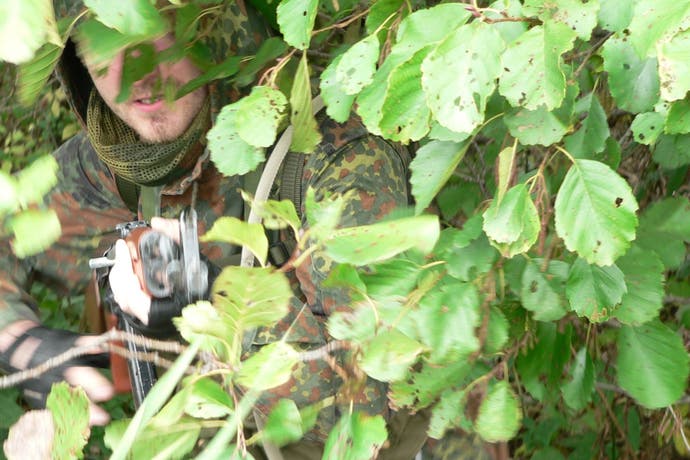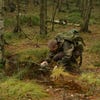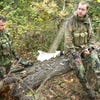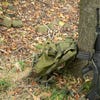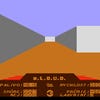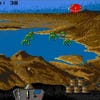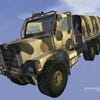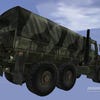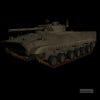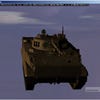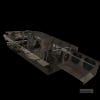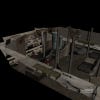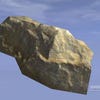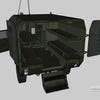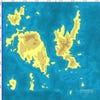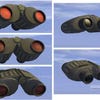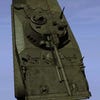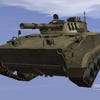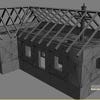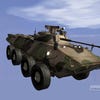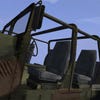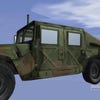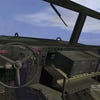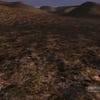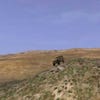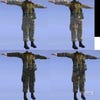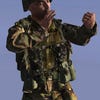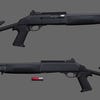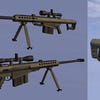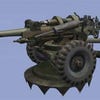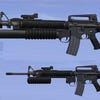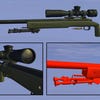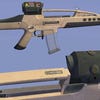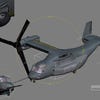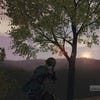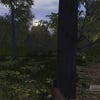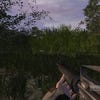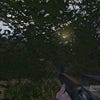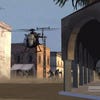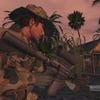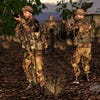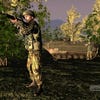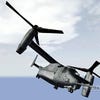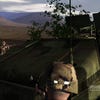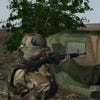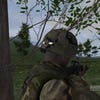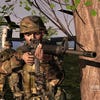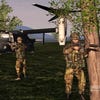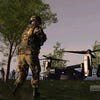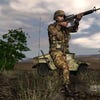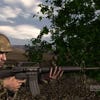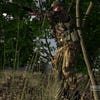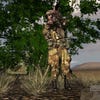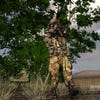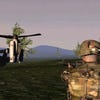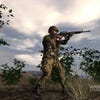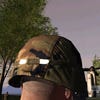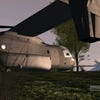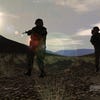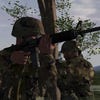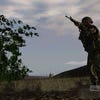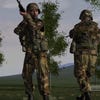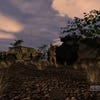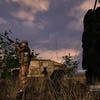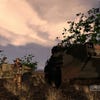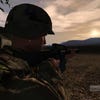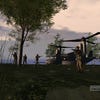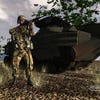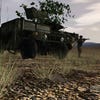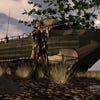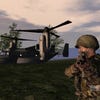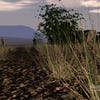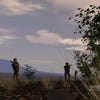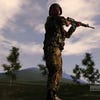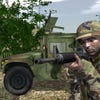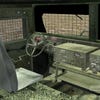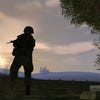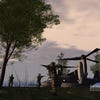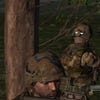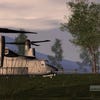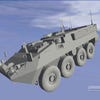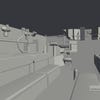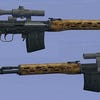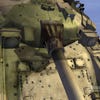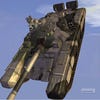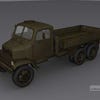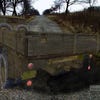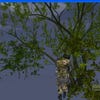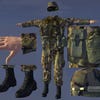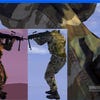Bohemia's war: the story of the company behind Arma and DayZ
From Operation Flashpoint to a Greek prison and back again.
Imagine waking one morning to discover that two of your staff had been detained in a foreign country over allegations of espionage. What would you do? You're not the head of MI6. You don't employ spies. You employ developers who make video games. You discover the news in your online forum but soon it's spread like wildfire, to local radio and TV, and people are knocking at your door for comment. What do you say? What do you tell the families of the arrested men?
It was the hardest period of Marek Španel's working life. In all the 13 years he'd run Bohemia Interactive Software he'd never expected this. "Nothing comes close to it," he tells me now, perched animatedly on the edge of a well-worn sofa in a comfy cabin-retreat of an office in rural Czech Republic, not far from the capital, Prague (it can be glimpsed in our DayZ video's short intro). "It was a big shock" and "it was everywhere", he remembers - "we were literally chased by state television".
The men in question, Ivan Buchta and Martin Pezlar, had been apprehended in possession of several photos of a military air base that the Greek authorities considered problematic - a threat to national security. The pair had taken hundreds if not thousands of pictures on Lemnos, an island they protested they were holidaying on. This was all "a completely absurd misunderstanding", they said at the time. But they were holidaying without their families, and Lemnos happened to be the setting of Bohemia's realistic new war game Arma 3 - something Marek Španel had suggested, having holidayed there a few times himself. The case would go to trial. But Buchta and Pezlar wouldn't go home; they would be imprisoned while they awaited their fate, facing a possible 20 years if found guilty.
The story blew up, making headlines around the world. Even Czech President Václav Klaus waded in, urging his Greek counterpart to "follow this unfortunate affair with special attention". Marek Španel and Bohemia rallied the Arma and DayZ communities to petition the detention and exert public pressure. But in truth Španel was as in the dark as everyone else, relegated to watching from the sidelines as days became weeks became months, and still nothing changed.
"It was very strange, it was very weird," he recalls. "You felt like being pressed from all ends by big powers you cannot really influence, like a catastrophe that happens and there's no way to stop it. That's when someone feels really hopeless in a sense. You realise you're just nothing."
A game sort of fell out of Bohemia's stunned being during that autumn of 2012 - Carrier Command: Gaea Mission - but nobody at the studio really cared. Španel also forfeited a key role on the DayZ standalone project, too preoccupied to take it. "In a sense we could not think about anything else other than our friends being in prison."
"I think it actually affected him health-wise," DayZ creator Dean Hall tells me. "It was like a debilitating blow. It's hard enough trying to run a company, and then this kind of thing happens? And Marek was a really good friend of Ivan."
"Things were never the same"
Ivan Buchta
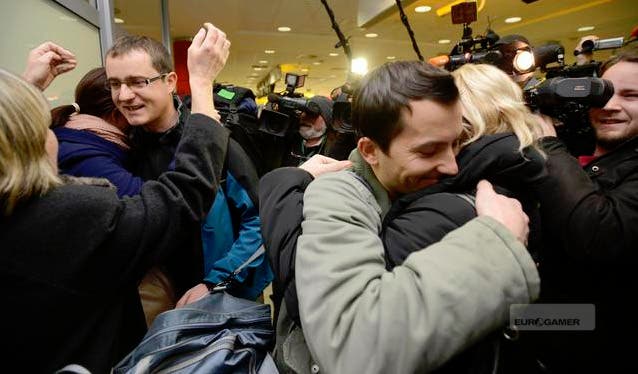
128 days later, Ivan Buchta and Martin Pezlar were granted bail and returned to an emotional homecoming in the Czech Republic, surrounded by press.
As we reach this point in the story, Ivan Buchta walks back into the room. He'd left the interview previously, believing himself to be causing a distraction. I hadn't expected to talk about Greece because I'd been told an interview about it would not be possible. Bohemia has effectively shut up shop on the matter since Buchta and Pezlar came home, where they're still awaiting trial, although whether that's still going ahead I don't know: a March 2014 trial deadline has been and gone. Thrown out? It's all very suspicious.
Sitting here, now, with Buchta in front of me, I feel it would be rude not to at least tell him what we'd been talking about.
"It was obviously very hard," he responds, "not just for us being there, but also you realised how the families must feel about that. Also, this family, because Bohemia is not a typical employer. We also thought how the guys here are doing. It was obviously a difficult time but it was a big lesson."
I come to realise that he's one of the most influential people at the company, despite having only been here for around half - eight years - of its history. When I arrived he was loudly commanding in the Arma 3 design room, and now he sits as Marek Španel's right-hand man during our two-and-a-half hour studio profile interview. Buchta hired and mentored Dean Hall, who considers him "the father of Arma", and he's responsible for the Chernarus map DayZ has made famous. He's a lover of the outdoors, of running hills and mountains, and brims with a focused energy that makes his intelligence intimidating. I can see why everyone here looks up to him, and it makes me appreciate even more the hole his prolonged detention must have left. I don't meet Martin Pezlar, incidentally.
I wonder what it must have been like to see Ivan Buchta at the studio again, and I'm surprised to learn, amid laughter, that it was Bohemia he visited first upon his return - a geographically logical stop between Prague airport and driving East to his family.
"Nobody was exactly partying, not even the families," he recalls. "It was like we were slowly realising it was true, that we are back. It was quite a big thing to process and swallow, and it took months to just get back into the usual pace. But things were never the same.
"Ever since, I'm trying to think out of the box, not just about the game but about my life. It was definitely a life-changing experience," he tells me, "and I hope that it will remain a once-in-a-lifetime [one]."
"It was definitely a life-changing experience, and I hope that it will remain a once-in-a-lifetime [one]"
Ivan Buchta
Nothing was the same for Bohemia after 2012. If the Greek incident rocked the boat, DayZ capsized it. How was Marek Španel to know an energetic New Zealander that Ivan Buchta had hired was making a mod that would change the face of his company forever? Dean Hall didn't tell anyone about it until it launched in April 2012, and by the time the summer arrived, he and DayZ were the hottest thing around - and Arma 2 sales were soaring.
When I visit Bohemia, business is booming. DayZ Standalone has passed 1.7m sales and the company is expanding across the Czech Republic and into Slovakia. In two short years, DayZ has grown from a team of one to a team of 65, and could number close to 100 by the end of the year. By comparison, the Arma 3 team numbers around 60. Bohemia is a company transformed. The days of Marek Španel changing into a Soviet uniform in a toilet at E3 each morning in a desperate effort to promote Operation Flashpoint seem a very long way away. And it's very different to how things began.
Španel grew up behind the infamous Soviet Iron Curtain, in what was then Czechoslovakia, under a strict communist regime that blocked information and goods coming from the West. "We lived in a kind of bubble," he says, and as Joseph Stalin believed cybernetics and IT to be part of 'a bourgeoisie science' that shouldn't be pursued, no one did, and the country was technologically decades behind. Even the Russians were illegally using computer processors made by American company Intel for their tank aiming systems, Španel relishes telling me. Today, years after the 1989 abolishment of communism, things in the Czech Republic still feel run down, the beautiful historic architecture of Prague speaking of a past glory, not present.
It took a Yugoslavian salesman in Sweden persuading Španel's whizzkid brother - who was at a physics 'Olympics' event there - not to buy five digital watches, but a Texas Instruments 99/4A computer instead, before Marek Španel had a computer he could use at home. But that was all he had - no manual, no games - so if he wanted to play something he'd have to figure out how to make it. His passion was born. Yet it would be another decade before he could turn it into a career, biding his time as a salesman for a game distribution company until in 1997, with a bit of start-up money from his old boss, he, his brother and another took the full-time plunge into making a game called Poseidon, which would become Operation Flashpoint.
It was to be a big success, winning the 2002 Game Developers Conference Rookie Award, presented by Valve's Gabe Newell, beating Remedy's beloved Max Payne in the process. The game itself, a tactical, realistic military simulation, scored a loyal following. It was cherished for welcoming and supporting modders and for free additional content - values still fundamental to Bohemia today. A team of 10 people had pulled it out of the bag - "we had no private lives, only work" - but from there everything went downhill, tumbling into an acrimonious split from publisher Codemasters in 2005 and near-collapse.
Bohemia, in its naivety, bit off far more than its small team could chew. It believed it could make an Xbox version of Operation Flashpoint, a sequel to Operation Flashpoint and continue supporting Operation Flashpoint all at the same time. It believed the Xbox conversion, Operation Flashpoint: Elite, would take nine months, but it took four years because the team struggled with the console's lack of RAM. It launched at the same time Microsoft launched the Xbox 360 and fell on deaf ears. "We spent four years working on an old game," Španel rues. "It was a big loss for the company."
Game 2, the sequel, was intended to be "perfect", so the team aimed for the clouds and got lost there, obsessively 3D-scanning army equipment in the name of unprecedented realism, and building everything from tiny blocks for players to destroy - mechanics developers baulk at even now. So caught up in the fastidious details was the team - on modelling things like eyeballs - that it had neglected to notice obvious things such as characters' legs not fitting their torsos. Game 2 was a mess.
"Our own ambitions with the game were really killing us as a company," Španel says. "We just did not have the skills, the resources and knowledge to do it. It was impossible for us to finish this game." Deadlines were missed and a publisher was peeved. "We were terrible in our own planning and vision - unpredictable completely."
In 2005, suspicious that Codemasters was looking for a way to develop Operation Flashpoint 2 without Bohemia (apparently engineers were sent to nose around the Czech studio), Španel looked for a way out. "We just wanted to be free," he says, away from the contract a desperate Bohemia had signed years ago that gave Codemasters first and last refusal over anything the studio made. "We ended up fighting out," he says, but without the Operation Flashpoint name and without much money to call its own.
What saved Bohemia was, oddly enough, the US army. It had sponsored an Operation Flashpoint mod called DARWARS Ambush! that had become the virtual training tool for soldiers - not that Bohemia knew anything about it. "A company that we had no clue about just took Operation Flashpoint - they kept buying the game from store shelves - and added a mod to make it DARWARS Ambush!, and it became a really successful training tool."
Bohemia legally put an end to it, making a little money, but in the process established a demand for that kind of software, and so a spin-off business, Bohemia Interactive Simulations, sprung up to cater for it. It's a global and completely separate business today, housed in a separate office in Prague, and supplies Virtual Battle Space (VBS) software to the UK, US and Australian army. Back in 2005, it was a vital lifeline. "It was really very good timing for us."
More than ever Bohemia needed to finish a game. Mistakes had to be learned from. This time there was no space for heady ambition. Bohemia recycled the streamlined Operation Flashpoint: Elite engine and set about making Armed Assault, which would become Arma in order not to clash with a US game called Armored Assault. "In the company, everyone hated the name," Španel reveals, but it was late in development so he steamrolled it through. It means "war" in Latin anyway, he shrugs, so it's not that bad, although Germans and Russians apparently can't deal with a title that isn't an English word, so still refer to Arma 3 as Armed Assault 3.
Bohemia turned down a worldwide publishing deal for the game, keen to remain independent and its own boss. Another lesson learned. The studio decided to try self-publishing through its own digital store and sign regional distribution deals where necessary. In November 2006 the game was ready, and it launched in pioneering early access form - an approach it has used ever since (and arguably did with Operation Flashpoint 1). When Arma arrived in the UK a few months later we heralded it as "an essential purchase for anyone interested in war simulation or tired of the contrived drama that fills mainstream military shooters". It sold enough to keep Bohemia afloat, and business was going in the right direction, finally.
"[Codemasters] really wanted to kill us in a sense, even on a personal level"
Marek Španel
Bohemia stuck to modest ambitions for Arma 2, deciding that it should reuse the piles of assets created for the abandoned Game 2. It was also originally intended to be an Xbox 360 game, but the console turned out to be far less powerful than Bohemia realised - "we had no clue... we did not expect it to be that much slower [than a PC]" - so the team refocused on PC. Another lesson learned.
Then in 2007, what Marek Španel had long feared came true: Codemasters announced its own Operation Flashpoint game - Operation Flashpoint: Dragon Rising - and was throwing the kitchen sink at it, wowing audiences with glitzy target renders. It was "a fierce fight", Španel remembers. "We had for the first time something we considered competition," and it drove Bohemia harder. "They really wanted to kill us in a sense," he believes, "even on a personal level. There's been a lot of personal hatreds in the minds of some people, and of course this rivalry was both ways; we as well felt like this was a big fight."
Finally at Gamescom 2008, Codemasters stopped using target renders and revealed the game proper, and Marek Španel breathed a sigh of relief. "When I saw the game I felt like we can be OK, because it does not come even close to what they promised, nor what we're doing." He also knew, through hard-earned experience, that Codemasters' big but inexperienced new team had aimed very high and would struggle to finish on time. And sure enough, it was delayed. "It's obvious they started to do some crisis management," Ivan Buchta observes. "It is a little miracle they even released the game," Španel adds.
Meanwhile, in the summer of 2009, Arma 2 came out, breaking the studio's Steam cherry and notching up 100,000 sales before long. It was buggy and co-op didn't really catch on, but it went down well, earning another "hearty recommendation" from Eurogamer as "an incomparably rich war sim". The Operation Arrowhead expansion appeared a year later, but not before Codemasters apparently tried to block it with a cease and desist legal letter, saying the game's title was too similar to Operation Flashpoint. "It was bizarre," Španel says. "I don't think any sane court would say Arma 2: Operation Arrowhead was the same name as Operation Flashpoint, and no sane court would ever say you could have operation for your trademark, especially for a military game. We just laughed back then - that was so silly."
After Operation Arrowhead, Bohemia decided to do something quite different, something science fiction, combining the talents of the acquired Altar Games studio in Brno (UFO trilogy) and Arma. "Fighting aliens, that was the concept," he says. "It was not a direct sequel originally but we wanted to experiment a bit - to crossover between the two genres we had in the company."
That's when Španel picked the Greek island of Lemnos for the setting, albeit for something called Arma Futura rather than Arma 3. The design apparently changed towards something more RPG but still science-fiction and apocalyptic, rather than fighting aliens in real-time strategy battles on smaller islands. It could be a one-man show on a big chunk of land, the team decided. But as time wound on, it became less and less science-fiction and more and more Arma 3.
Codemasters put out another Operation Flashpoint game called Operation Flashpoint: Red River, but it had become squad-based and tactical, more like Ghost Recon than the original Operation Flashpoint, Španel says. "That's when the brand lost any value for us." Even if Codemasters was selling it, Bohemia wouldn't buy it, not today. "There's a great [military simulation] brand," quips Buchta. "It's Arma." And when the Operation Flashpoint 1 publishing contract expired, Bohemia formally renamed Operation Flashpoint: Cold War Crisis to Arma: Cold War Assault.
Codematers gave up on Operation Flashpoint and refocused on racing games, and Bohemia went from strength to strength getting lucky with DayZ and also delivering on Arma 3, a game we again - and only recently - recommended, as "a darned impressive package".
The war with Codemasters was over and Bohemia had won. Two fingers up to the big boys? "You said so!" Španel laughs.
Today Bohemia is the biggest, most recognisable studio in the Czech Republic, and there are many similarities between it and Polish flag-waver CD Projekt Red, maker of The Witcher games. Both were at the vanguard of establishing gaming industries where previously there were none - a tribute to their tenacity - and their upbringings in former socialist countries instilled values fundamental to what they do now, such as valuing online communities by supporting modders, releasing free content and refusing restrictive anti-DRM measures. Both also persevered through hard times, learning from their mistakes to become the global players they are today.
In some ways, Bohemia didn't ask for this; it was minding its own business, plodding along, making its war games, apparently ignored by local press when suddenly down crashed Dean Hall and DayZ like a meteor - the impact of which it's still reeling from. While DayZ's Prague Riverside office may be all concrete suave with huge windows overlooking the river, Bohemia's countryside Mníšek office is dilapidated by comparison, however tranquil it seems (though it does feature - in a separate building - an impressive motion capture studio with a bit of find-your-feet staff accommodation above). I don't visit the Brno office or the other in Prague designated to 'back office' affairs.
I'm not sure if I warm to Marek Španel in the same way I do Ivan Buchta or Dean Hall, and there's a little part of me that feels sorry for him, not because he's made his fortune, but because it was Dean Hall's game, not his own, that made it. The 15 years Marek Španel spent building Operation Flashpoint and Arma were overshadowed in two by Dean Hall and DayZ, and signing off Hall's increasing demands along the way must have been tough. They are the two effective heads of Bohemia today, Hall and Španel, whatever it might say on their business cards, and although they talk in praising tones about each other, they're never in the same place at the same time and I can't quite bring myself to believe they're friends. How will Španel and Bohemia cope when Dean Hall moves back to New Zealand? Peacefully, I'm sure.
Bohemia has no great ambitions for anything big and new for the next couple of years, Španel tells me. "We feel there's so much we can do with Arma 3 and DayZ." Dean Hall has laid out the roadmap for DayZ in 2014, and Arma 3 has just welcomed the inventive new Zeus DLC, and is aggressively pursuing the next big Arma fan mod with the €500,000 Make Arma Not War competition. There are smaller projects such as realistic exploration game Take on Mars, but it's an experimental distraction more than anything.
So the pace of life is levelling out to comfortable again for Bohemia, the boat stabilising. For Marek Španel I'm sure that's very welcome indeed.
This article was based on a press trip to Bohemia's offices in the Czech Republic. Bohemia paid for travel and accommodation.
